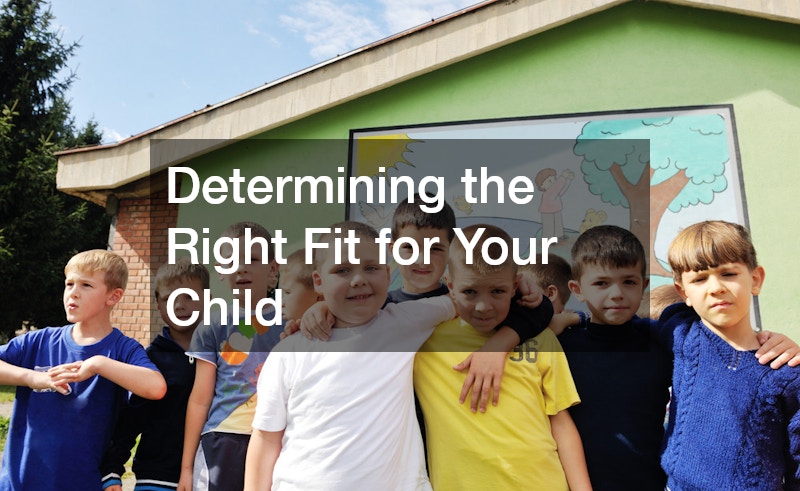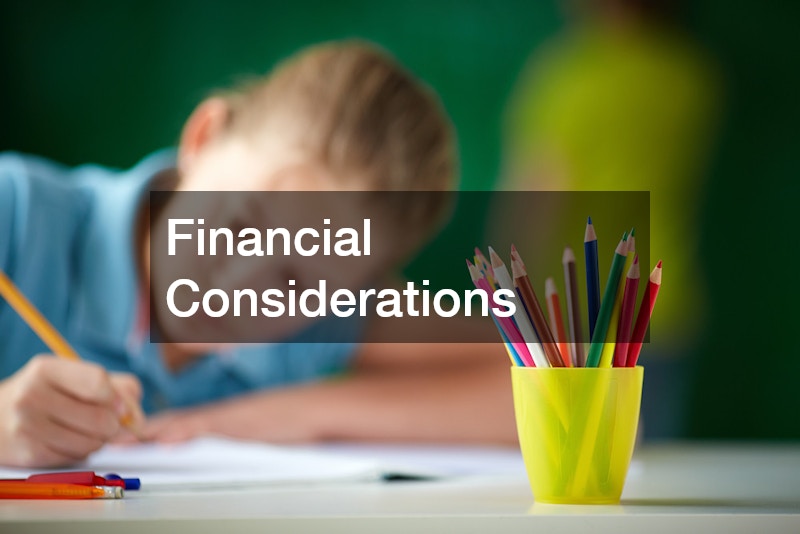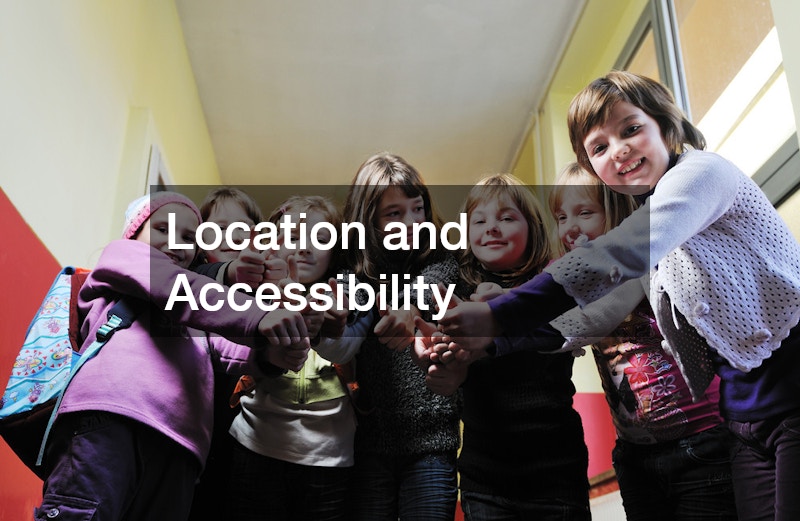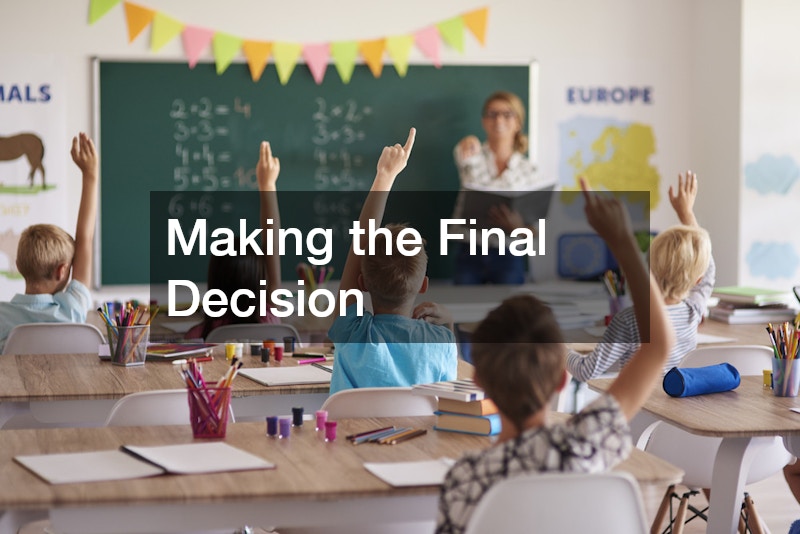The decision to enroll your child in a private school is not one to be taken lightly. With countless options available, each offering unique advantages, parents must weigh several factors. From the quality of education to the extra-curricular activities offered, each aspect requires careful consideration to ensure that the private school chosen resonates with both the student’s and family’s aspirations.
Private schools are often perceived as elite institutions that promise a superior education. However, the reality is more nuanced, as private schools vary greatly in their methodologies, environments, and values. It is crucial for parents to understand these differences and select a school that aligns with their educational priorities and personal beliefs.
Choosing the right private school can have a marked impact on a child’s development, both academically and socially. The institutions often provide an extensive support system, with experienced teachers acting as mentors, much like a trusted doctor would for a patient. Moreover, facilities like state-of-the-art libraries, science labs, and even golf clubs can enrich a student’s learning experience, making the decision even more significant.
Determining the Right Fit for Your Child

Identifying the right private school involves understanding your child’s needs, strengths, and weaknesses. Not all children thrive under the same conditions, and a one-size-fits-all approach seldom works when selecting a school. It is vital to assess the unique qualities of your child, similar to how foot doctors would diagnose individual ailments.
Each private school offers a distinct environment, characterized by its teaching philosophy and culture. Some schools focus on academic rigor, preparing students intensely for college and future careers. Others emphasize creativity and the arts, fostering an environment where students can explore their passions much like a physical therapist encourages holistic health.
Visiting schools and checking references can offer valuable insights into the communities they foster. Engaging with current students and parents can reveal the school’s atmosphere, much like a visit to an aviation museum can uncover the history and spirit of flight. Observing these dynamics firsthand helps determine the alignment between the school’s values and your child’s needs.
When choosing a private school, it’s also important to evaluate the extracurricular opportunities available. Activities such as sports, arts, and STEM clubs play a significant role in shaping a well-rounded education. Much like a fitness trainer balances different exercises for overall health, these programs balance academic pursuits with personal development, helping students discover new talents and skills while fostering social interaction.
Another crucial factor to consider is the student-to-teacher ratio, which can greatly influence the quality of education. Smaller class sizes often allow for more individualized attention, helping educators tailor their teaching to each student’s learning style. This approach is akin to how a nutritionist customizes meal plans to meet specific health needs, ensuring optimal growth and success in a supportive learning environment.
Finally, evaluating the resources and facilities available at a private school can provide a clearer picture of the opportunities your child will have. Libraries, science labs, and technology centers reflect a school’s commitment to fostering innovation and critical thinking. Think of these as the tools in a craftsman’s workshop—without the right ones, even the most skilled individual can be limited. Ensuring the school has the infrastructure to support your child’s interests and ambitions is key to making an informed decision.
Academic Excellence and Curriculum
Academic excellence is often at the forefront of considerations when selecting a private school. The curriculum and faculty should be carefully evaluated, ensuring that they cater to the individual learning needs of your child. Understanding how a private school’s academic offerings compare with public options can help clarify their worth.
Some private schools specialize in certain subjects or areas, providing unique opportunities for advanced learning. For example, schools with an emphasis on STEM might include specialized labs or partnerships with local industries, such as auto brake repairs companies, to provide practical experience. Similarly, a private institution with a focus on history and politics might connect with a local bankruptcy agency to provide insights into economic cycles.
The reputation of the faculty also contributes to a school’s academic standing. Teachers who are specialists in their fields, akin to experienced dentists, can offer exceptional guidance and support. This ensures not only a strong foundation in key subjects but also the potential for innovative instruction methods that can enhance student engagement.
Beyond academic offerings, it’s essential to examine how a private school supports diverse learning styles and paces. Many private institutions implement differentiated instruction, tailoring lessons to meet individual student needs. This approach is similar to how chiropractors customize treatments for specific conditions, ensuring that every student has the tools to succeed academically, regardless of their strengths or challenges.
Additionally, private schools often provide robust mentorship programs, pairing students with faculty members or professionals to guide them through their educational journey. These programs can be invaluable in helping students develop clear goals and pathways to success. Much like a personal trainer guiding someone toward their fitness objectives, a strong mentorship program fosters confidence, focus, and long-term achievement.
Extracurricular programs that integrate academics with practical applications can also set private schools apart. For instance, a school that emphasizes environmental science might collaborate with local green energy companies to offer students hands-on learning opportunities. Such initiatives, akin to apprenticeships in trades like auto repair or dental technology, give students a deeper understanding of their fields of interest and a head start in building valuable skills for the future.
Extracurricular Opportunities
Extracurricular activities play a pivotal role in the development of well-rounded individuals. Clubs, sports, and arts programs offer students the chance to discover new interests and develop skills outside the traditional classroom setting. In many private schools, access to specialized facilities like golf clubs or aviation simulators can provide unique recreational experiences.
The variety and quality of these programs can significantly influence a private school’s appeal. Sports teams or artistic endeavors instill discipline, teamwork, and leadership skills that are invaluable in personal development. Just as flight training schools focus on pilot precision and resilience, a well-rounded extracurricular program in a private school can nurture similar strengths in students.
Participation in such activities often builds a sense of community and belonging among students. Engaging with peers in diverse settings fosters friendships and networks that can rely on support systems much like those provided by healthcare professionals, including doctors and physical therapists, in their practices. These experiences contribute to a rich and fulfilling school life.
Extracurricular programs also play a critical role in fostering essential life skills that extend beyond academics. Activities like debate clubs or volunteer organizations teach students to articulate their ideas, work collaboratively, and navigate real-world challenges. These experiences often mirror the problem-solving and adaptability required in professional settings, providing students with a solid foundation for future success.
Moreover, participation in extracurriculars allows students to explore their passions deeply and identify potential career paths. For instance, involvement in robotics clubs or science fairs can spark an interest in engineering or technology fields, much like how early exposure to internships guides professional development. Such opportunities encourage students to think critically and creatively, equipping them with the tools to pursue their ambitions.
Private schools often prioritize integrating extracurricular activities into their overall educational philosophy, ensuring they complement academic pursuits. By doing so, students develop a balanced approach to their education, learning the importance of time management and prioritization. This holistic emphasis aligns with fostering well-rounded individuals prepared to contribute meaningfully to society.
Financial Considerations

The financial commitment required for private school education is another vital factor that parents must consider. Tuition fees can vary widely between institutions, and additional costs such as uniforms, extracurricular activities, and transportation must also be factored in. Much like planning a significant medical procedure with a foot doctor, understanding the full financial landscape is crucial.
Many private schools offer financial aid or scholarship programs, designed to make education accessible to students from various economic backgrounds. Investigating these options can alleviate some of the financial pressure associated with private schooling. Likewise, families might explore alternative funding avenues, similar to consulting a bankruptcy agency when managing debts, to ensure financial stability.
Moreover, weighing the long-term benefits against the immediate costs can provide clarity. Investment in a private school’s education may enhance future opportunities for your child, much like the skills acquired from a physical therapist, which can improve lifelong well-being. Therefore, conducting a comprehensive cost-benefit analysis is essential in the decision-making process.
When assessing the financial implications of private school education, it’s also important to consider hidden costs that may not be immediately apparent. Expenses for field trips, school supplies, technology fees, and special events can add up quickly. These additional costs can sometimes rival tuition itself, making it essential to review the school’s policies and requirements in detail. A thorough understanding of all associated costs ensures families are better prepared for the financial commitment, much like meticulously planning a home renovation to avoid unexpected expenses.
Additionally, parents should consider the value of networking and community resources often associated with private schools. Many institutions have alumni networks or partnerships with local businesses, which can offer valuable opportunities for students and their families. These connections may provide long-term benefits, such as internships or career advancement, that justify the upfront investment. In this way, private education becomes more than a financial expense; it’s a gateway to opportunities that might not be available in public schooling environments.
Location and Accessibility

The geographical location of a private school plays a crucial role in the decision-making process. Proximity to home can greatly affect daily routines, influencing both practical considerations like transportation costs and time, as well as emotional factors like family involvement. In some cases, the convenience of close schools might outweigh the potential benefits of distant institutions.
An ideal location is not just about proximity but also about the surrounding environment. Schools situated in safe neighborhoods or areas with access to cultural amenities such as theaters, museums, or sporting facilities like golf clubs offer additional educational and recreational than opportunities. These could be appealing for families who value a vibrant community culture.
Access to specialized resources can also dictate location choices. For example, families with students requiring car wheelchair lifts will prioritize schools with accessible facilities and transportation services. Or, if a student has a particular interest in aviation, proximity to flight training schools could be a deciding factor. Understanding these logistical elements ensures practical feasibility for the chosen school.
Making the Final Decision

After thorough research and evaluation, making the final decision on which private school to choose can seem daunting. Compiling a list of pros and cons based on the key factors of academics, extracurriculars, cost, and location can help in clarifying the best fit for your child and your family. Reflecting on this synthesis provides a clearer picture of the overall suitability and alignment with your goals.
Open discussions with family members, including the child, offer diverse perspectives and insights. These conversations provide valuable contexts, similar to consultations with a dentist regarding a family member’s health needs. This collaborative approach ensures that the choice is agreeable to all parties involved.
Trusting your instincts alongside rational considerations is also crucial in this decision. A thorough, methodical exploration of all options, much like the meticulous practices in auto brake repairs or aviation, is vital for confidence in your final decision. Ultimately, the choice should feel right for your child’s future and well-being.
Choosing the right private school is a comprehensive process that demands careful consideration of multiple factors. Understanding academic strengths, extracurricular opportunities, financial implications, and logistical arrangements is key to ensuring the best match for a child’s needs. By approaching this decision thoughtfully, families can find an institution that fosters both academic excellence and personal growth.
A private school can offer more than just classroom education; it can be a place of profound development, much like a physical therapist aids in overall health improvement. The right environment nurtures lifelong skills, providing a foundation for future success and resilience. Ensuring this holistic education requires a commitment akin to the dedication of a doctor or a dental practitioner to treat their patient with utmost care.
Ultimately, parents must trust their evaluations and insights gathered throughout this journey. Combining objective analysis with personal judgments helps in crafting a decision as pivotal as selecting the ideal private school for their child. By doing so, families can confidently embark on a path of enriched education and opportunity.